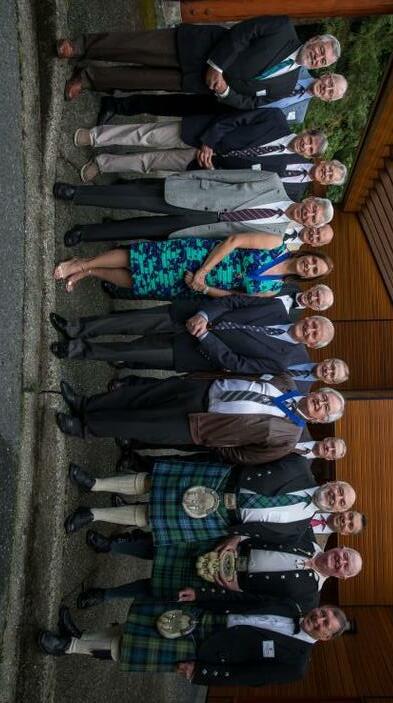
2 minute read
A History of the Magazine
A History of the Magazine
Club Members ask from time to time about the history of the Magazine which reaches them every autumn, and the Editor is often asked for an explanation of the italicised line on the front page under the title of the publication. Repeated below is the history as last published on page 20 of the December 1956 issue.
Advertisement
1885 First Issue 1885-93 Nine issues published January 1894 “New Series” started. (Hence the reference to “New Series” under the heading on p.1) 24 Sept. 1907 A Special General Meeting of the F.P. Club resolved inter alia that the Magazine be enlarged to contain a section entirely devoted to matters of interest to former pupils in all parts of the world; and that henceforth all members of the F.P. Club should receive a free copy of the Magazine. It was arranged, too, at that time that financial control of the Magazine should pass to the F.P. Club. October 1907 The first issue under the new arrangement was published. (The late Dr. Theodore Watt was appointed Editor-in-chief in October 1907 and retained that office until his death in 1946). The Magazine has been published continuously since 1894.
While looking for the Magazine history printed above the Editor discovered an item on page 23 of the 1956 Magazine written by an FP who had just visited the Klondike via the Inside Passage and on to Alaska. This was in the days before modern cruise liners started regular trips to that part of the world. The writer was John Young who had been a pupil at the Grammar in 1889-94. What attracted the Editor’s attention was the reference to two writers and a poet whose impressions of the gold prospectors in the Yukon had been handed down to posterity in prose and poetry, one of the writers being Jack London and the other Robert W. Service.
Mr Young narrates the various means of travel from Vancouver north to Alaska and comments that steam-boat passage, by the time he was making his trip, was a thing of the past. That said, the last leg of his journey to Vancouver was by steamer from Squamish which he found to be a fitting climax to his visit.
He then referred again to the writer Robert Service and wrote of his amusing ballad “The Cremation of Sam McGee”, continuing “It is interesting to note that



